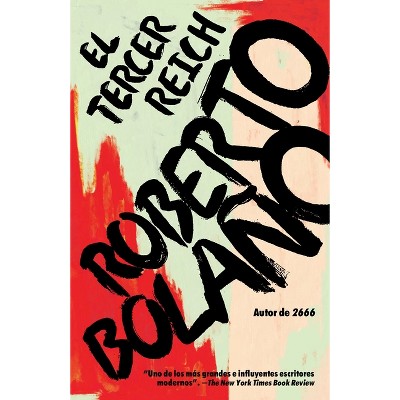Esperanto and Its Rivals - (Haney Foundation) by Roberto Garvia & Roberto Garvía (Hardcover)

About this item
Highlights
- The problems of international communication and linguistic rights are recurring debates in the present-day age of globalization.
- About the Author: Roberto Garvia is Associate Professor of Sociology at Universidad Carlos III de Madrid.
- 240 Pages
- Foreign Language Study, Miscellaneous
- Series Name: Haney Foundation
Description
About the Book
Roberto Garvía explores the history of artificial spoken or written languages and the people who fought for them. Taking the three most prominent--Volapük, Esperanto, and Ido--Garvía investigates what drove so many to invest incredible energy and time to learn and promote them.
Book Synopsis
The problems of international communication and linguistic rights are recurring debates in the present-day age of globalization. But the debate truly began over a hundred years ago, when the increasingly interconnected world of the nineteenth century fostered a desire for the development of a global lingua franca. Many individuals and social movements competed to create an artificial language unencumbered by the political rivalries that accompanied English, German, and French. Organizations including the American Philosophical Society, the International Association of Academies, the International Peace Bureau, the Comintern, and the League of Nations intervened in the debate about the possibility of an artificial language, but of the numerous tongues created before World War II, only Esperanto survives today.
Esperanto and Its Rivals sheds light on the factors that led almost all artificial languages to fail and helped English to prevail as the global tongue of the twenty-first century. Exploring the social and political contexts of the three most prominent artificial languages--Volapük, Esperanto, and Ido--Roberto Garvía examines the roles played by social movement leaders and inventors, the strategies different organizations used to lobby for each language, and other early decisions that shaped how those languages spread and evolved. Through the rise and fall of these artificial languages, Esperanto and Its Rivals reveals the intellectual dilemmas and political anxieties that troubled the globalizing world at the turn of the twentieth century.
Review Quotes
"Roberto Garvía has written an original narrative crammed with fascinating detail about the experiment in Esperanto as well as other less well remembered ideas. This marvelous book will appeal to all curious historians and linguists."-- "Cathie Carmichael, University of East Anglia"
About the Author
Roberto Garvia is Associate Professor of Sociology at Universidad Carlos III de Madrid.










